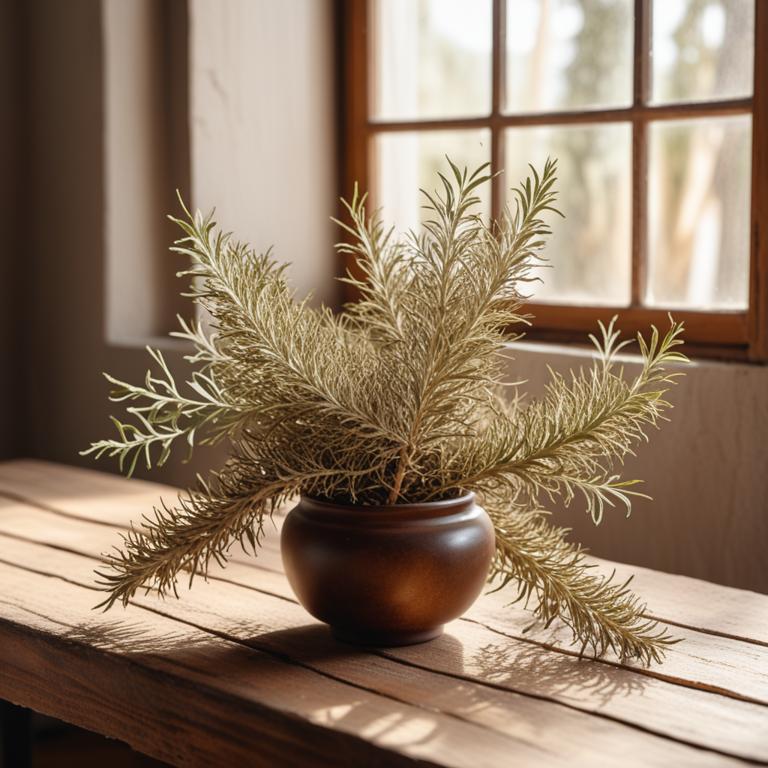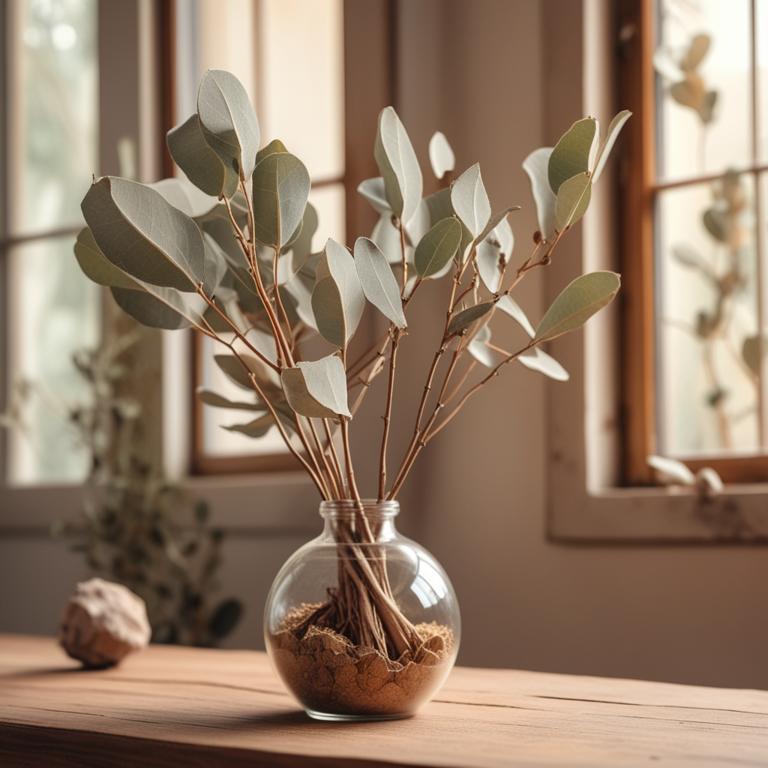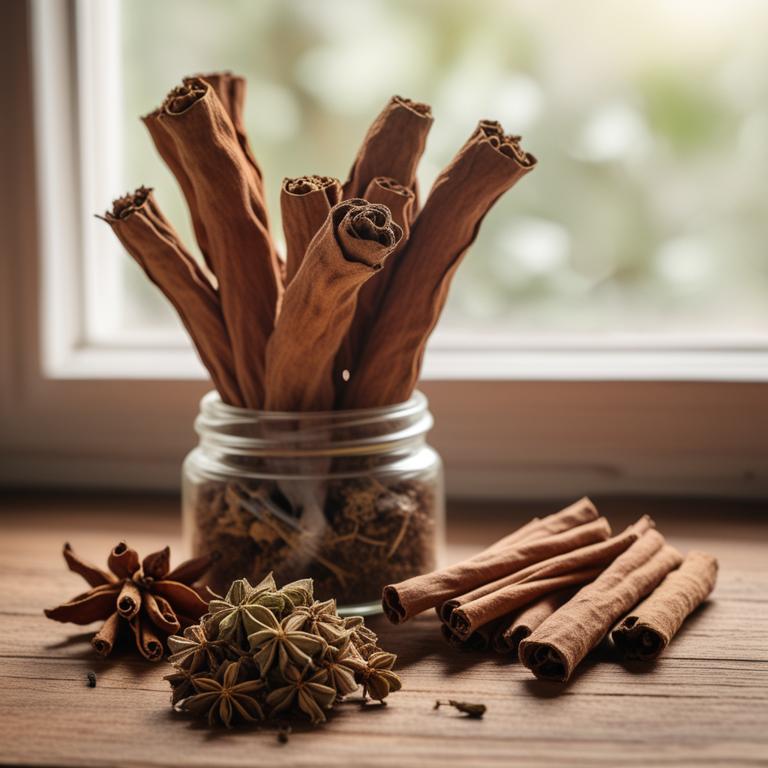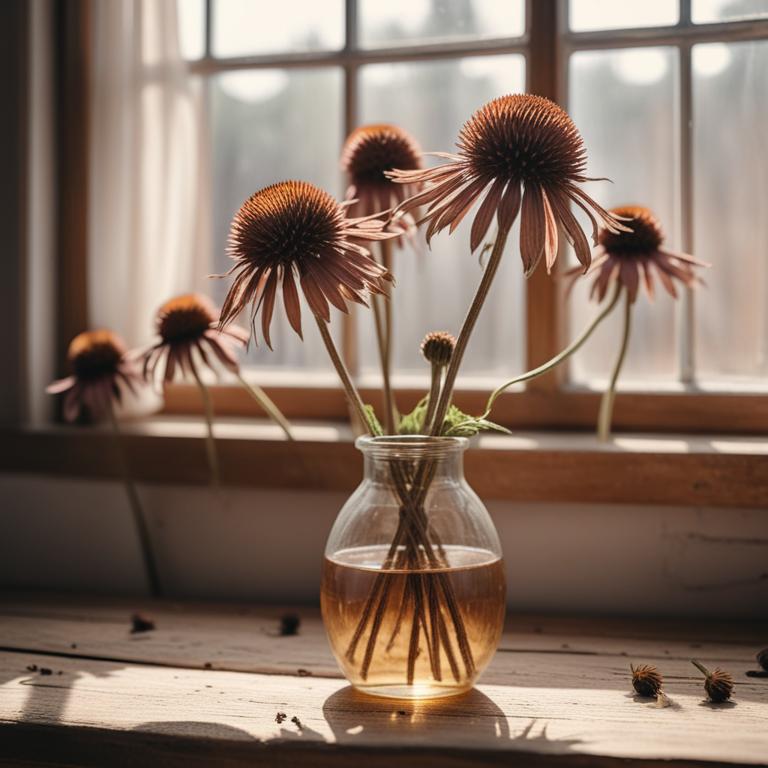Updated: Dec 1, 2024
Enlarged Spleen and Herbal Medicine: Understanding the Connections
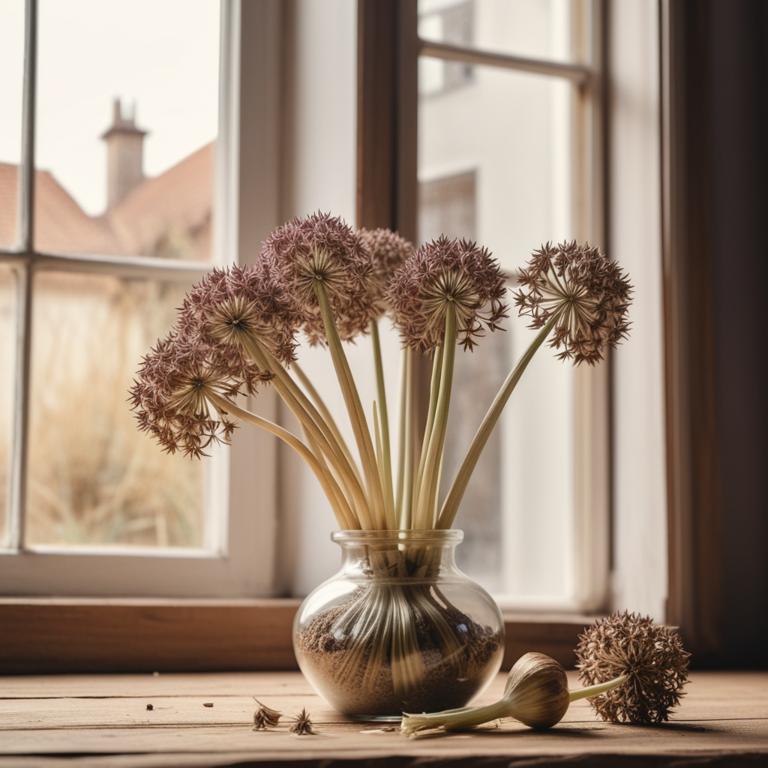
An enlarged spleen, also known as splenomegaly, is a condition where the spleen becomes larger than normal.
This can cause discomfort and pain in the upper left part of the abdomen, and may also lead to fatigue, weakness, and shortness of breath. In severe cases, it can cause swelling in the legs and feet due to fluid buildup. The spleen enlarges when it is working overtime to filter the blood, which can be due to various reasons such as infections, liver disease, blood disorders, or even a side effect of certain medications. In some cases, the cause of an enlarged spleen is unknown. Herbal remedies can be beneficial in treating an enlarged spleen.
Herbs like turmeric, with its anti-inflammatory properties, and dandelion root, which is known for its liver cleansing properties, can help alleviate symptoms. Another herb, ginger, can help reduce pain and inflammation. Herbal teas are a popular way to consume these remedies. Turmeric tea, made by steeping turmeric roots in hot water, can be a soothing and effective drink. Dandelion tea, made by infusing dandelion roots in hot water, can help cleanse the liver and reduce the size of the spleen. Ginger tea, made by steeping ginger roots in hot water, can help reduce pain and inflammation.
You can also consume these herbs in capsule or tincture form, but it's essential to consult a healthcare professional before using any herbal remedies, especially if you have a pre-existing medical condition.
Table of Contents
What factors lead to an enlarged spleen?
The main causes of enlarged spleen are various conditions that put extra pressure on the spleen, causing it to swell.
One of the main causes is HIV, a virus that weakens the immune system, making it harder for the spleen to filter out toxins and infections. Cirrhosis, a condition where the liver becomes scarred and damaged, can also lead to an enlarged spleen as the liver struggles to remove waste products, causing the spleen to take on some of the workload.
Sarcoidosis, an inflammatory disease that affects multiple organs, including the spleen, can cause it to become enlarged as the body's immune system attacks healthy tissues. Lymphoma, a type of cancer that affects the immune system, can also lead to an enlarged spleen as abnormal cells multiply and put pressure on the spleen. Leukemia, a type of blood cancer, can cause the spleen to become enlarged as the bone marrow produces too many abnormal blood cells, leading to a buildup in the spleen.
Finally, Thalassemia, a genetic disorder that affects the production of hemoglobin, can cause the spleen to become enlarged as it tries to filter out abnormal red blood cells.
What benefits can be derived from using herbs for an enlarged spleen?
Using certain herbs can help with enlarged spleen by reducing swelling and inflammation.
These herbs have anti-inflammatory properties, which can help calm down the spleen and bring it back to its normal size. They can also help improve blood circulation, which is essential for removing toxins and waste products from the body.
By improving digestion, the herbs can also help reduce the workload on the spleen and prevent further enlargement. Additionally, they can help boost the immune system, making it easier for the body to fight off infections and diseases that can cause the spleen to become enlarged in the first place.
By reducing stress and anxiety, the herbs can also help regulate the body's natural healing processes and promote a sense of well-being.
What medicinal herbs are used to alleviate an enlarged spleen?
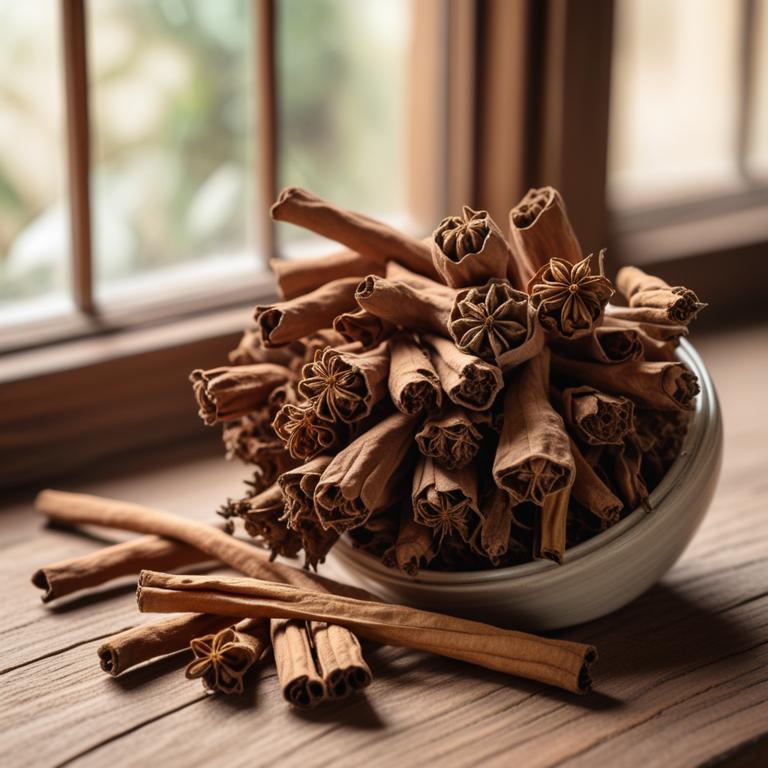
An enlarged spleen, or splenomegaly, can be caused by various factors, including infections, blood diseases, and liver problems.
Certain herbs have been traditionally used to help reduce spleen swelling and improve overall health. One such herb is Cinchona officinalis, which contains quinine, a natural anti-inflammatory compound that can help alleviate spleen swelling. Another herb is Zingiber officinale, also known as ginger, which has anti-inflammatory properties that may help reduce pain and swelling associated with an enlarged spleen.
Curcuma longa, or turmeric, contains curcumin, a powerful anti-inflammatory compound that has been shown to have antioxidant and anti-inflammatory effects. Taraxacum officinale, or dandelion root, is a natural diuretic that may help reduce fluid buildup in the spleen, which can contribute to its enlargement. Finally, Ginkgo biloba is a herbal remedy that may help improve circulation and reduce inflammation in the spleen, which can also contribute to its enlargement.
These herbs may be used in various forms, including teas, capsules, and infusions, under the guidance of a healthcare professional.
What herbal remedies are commonly used to treat enlarged spleen?
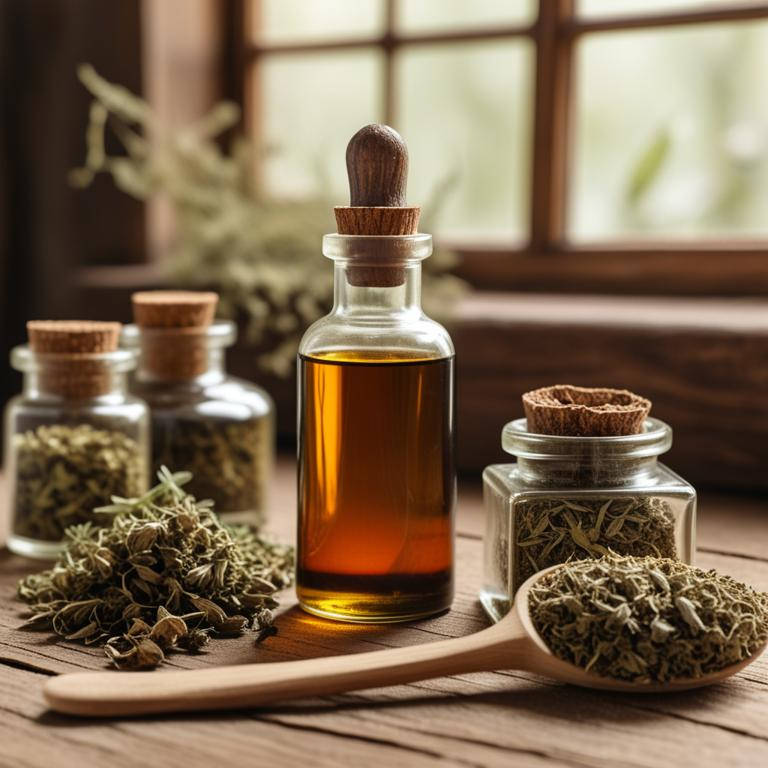
When it comes to treating an enlarged spleen, herbal preparations can be a great help.
One way to use herbs is through a decoction, which is a strong tea made by boiling herbs in water. For example, Dandelion root decoction can help reduce swelling and ease pain in the spleen area. The heat from the decoction helps to bring out the active ingredients in the herbs, making them more effective. Another way to use herbs is through a tincture, which is a concentrated liquid made by soaking herbs in a solvent like alcohol. Tinctures are great because they're easy to use and can be taken in small amounts. Yarrow tincture, for instance, can help reduce inflammation and improve circulation, which can help to shrink an enlarged spleen. Herbal infusions are also a popular way to use herbs, and they're made by steeping herbs in hot water.
Peppermint infusion, for example, can help to calm the digestive system, which can be helpful when you're dealing with an enlarged spleen. Herbal infusions are often gentle and easy to digest, making them a good choice for people who are sensitive to herbs. If you prefer to take your herbs in capsule form, that's okay too. Capsules are a convenient way to get the benefits of herbs without having to taste them. Turmeric capsules, for instance, contain a compound called curcumin, which has anti-inflammatory properties that can help to reduce swelling in the spleen. Finally, herbal salves can be applied topically to the affected area. A salve made with comfrey and calendula can help to reduce pain and inflammation in the spleen area, while also promoting healing and reducing scarring.
Herbal preparations like these can be a helpful addition to your treatment plan, especially when used under the guidance of a healthcare professional.
Additional Resources:
What herbs are best avoided in cases of an enlarged spleen?
If you have an enlarged spleen, it's essential to be cautious with certain herbs that could potentially make things worse.
Glycyrrhiza glabra, also known as licorice root, contains a compound that can cause your body to hold onto water and increase blood pressure, which can put extra strain on your spleen. This can lead to further swelling and discomfort. Ephedra sinica, also known as ma huang, is a stimulant that can increase your heart rate and blood pressure. This can also put extra stress on your spleen, making it work harder and potentially leading to more inflammation.
Astragalus membranaceus, or astragalus root, is often used to boost the immune system, but it can also cause your spleen to become more active, which can be a problem if it's already enlarged. This can lead to more bleeding and inflammation. Panax ginseng, or ginseng, is another herb that can stimulate your body and increase your heart rate and blood pressure. Like Ephedra sinica, this can put extra strain on your spleen and make it work harder, potentially leading to more problems. Paeonia lactiflora, or peony root, is often used to treat bleeding and inflammation, but it can also cause your spleen to become more active, which can be a problem if it's already enlarged.
This can lead to more bleeding and inflammation, making your condition worse.
FAQ
Are there any specific herbs that can prevent enlarged spleen?
Turmeric contains a compound called curcumin, which has anti-inflammatory properties that may help prevent spleen enlargement.
Ginger is also known to reduce swelling and pain, which can be beneficial for the spleen.
These herbs can be consumed as tea or added to meals, but their effectiveness in preventing spleen enlargement is still being researched.
Is it safe to use herbal remedies for enlarged spleen during pregnancy?
Using herbal remedies for an enlarged spleen during pregnancy is not recommended.
Some herbs can cause problems for the mom and the baby. For example, they might make blood pressure go up or cause the uterus to contract too hard.
It's best to try other ways to manage the symptoms.
Are there any herbs that can reduce the frequency of enlarged spleen?
Turmeric contains curcumin, which may help reduce inflammation and swelling in the spleen.
Ginger has anti-inflammatory properties that could also help alleviate enlarged spleen symptoms.
Both herbs are believed to aid in reducing the frequency of the condition by combating inflammation, a common cause of splenomegaly.
Can i combine different herbal remedies for enlarged spleen?
You can combine different herbal remedies for an enlarged spleen, but be cautious.
Some herbs interact with each other, so it's essential to research their effects and potential side effects.
For example, combining ginger and turmeric may enhance their anti-inflammatory properties, but too much may irritate your stomach.
Related Articles
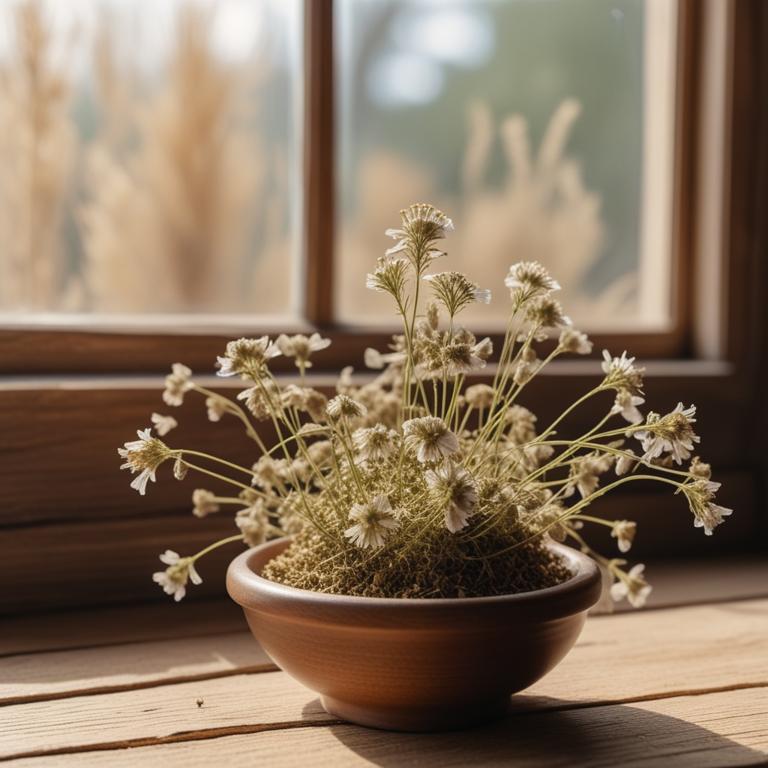
Pink Eye Causes and Natural Treatments with Medicinal Herbs
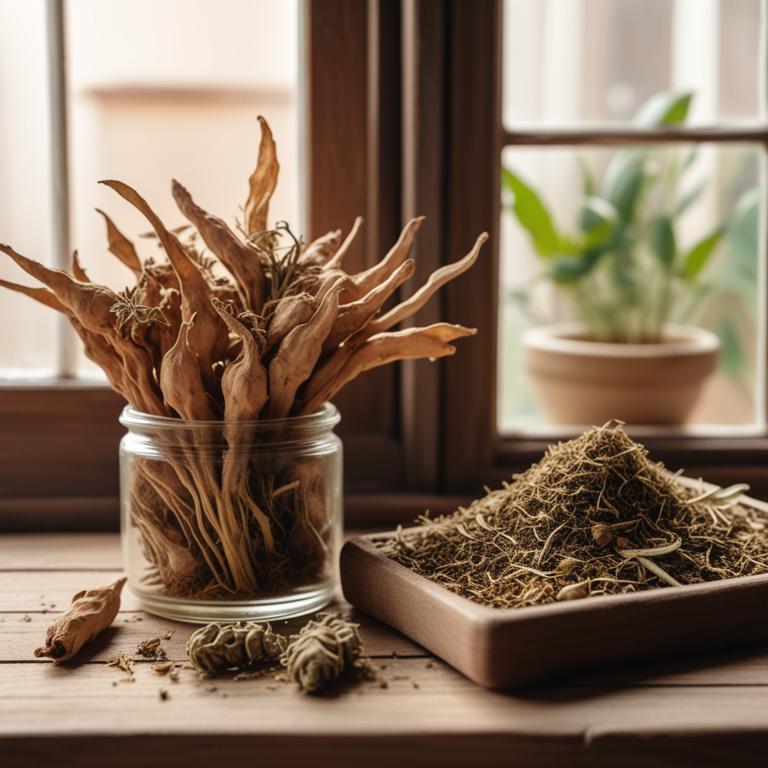
Tonsillitis: Causes, Herbal Remedies, and Homeopathic Preparations
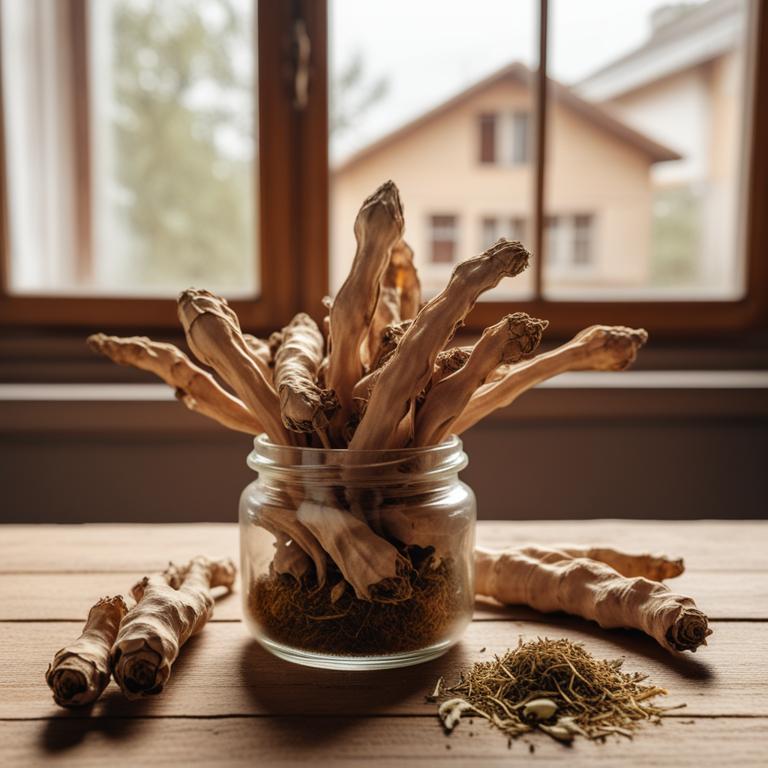
Inflammation: Understanding the Causes and the Therapeutic Use of Medicinal Herbs and Herbal Preparations
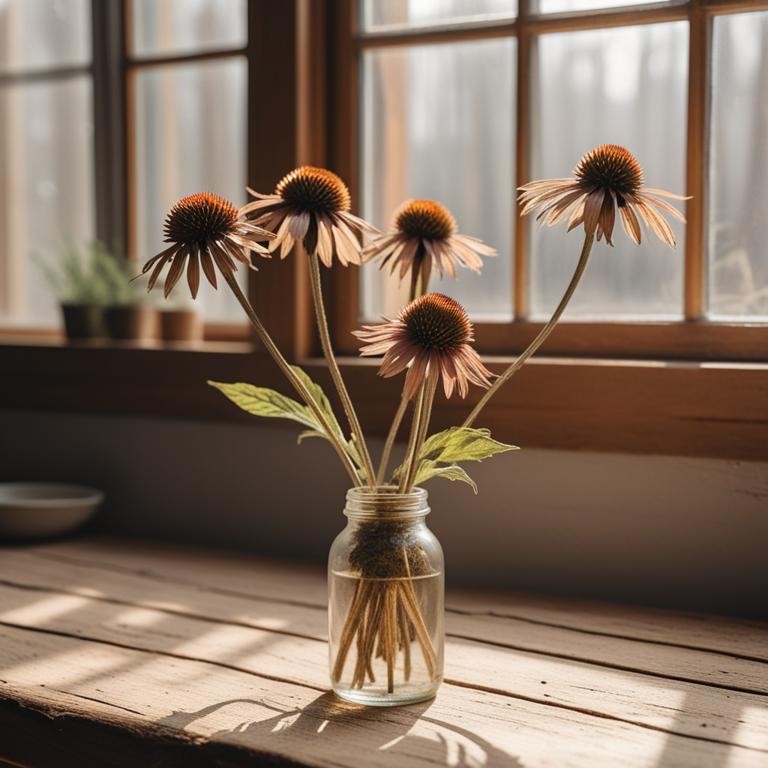
The Role of Medicinal Herbs in Preventing Infection
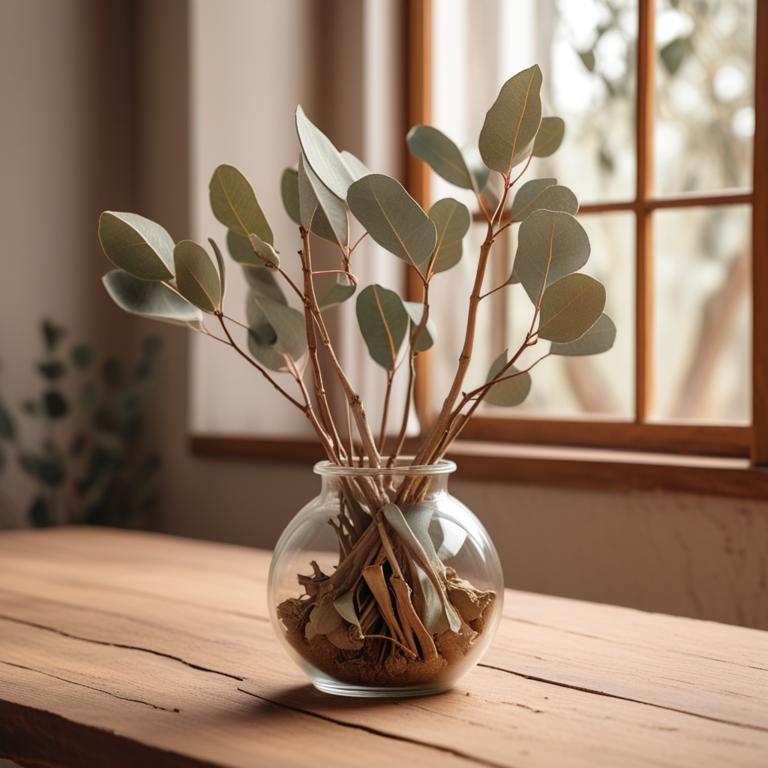
The Flu: A Guide to Causes, Medicinal Herbs, and Herbal Preparations
